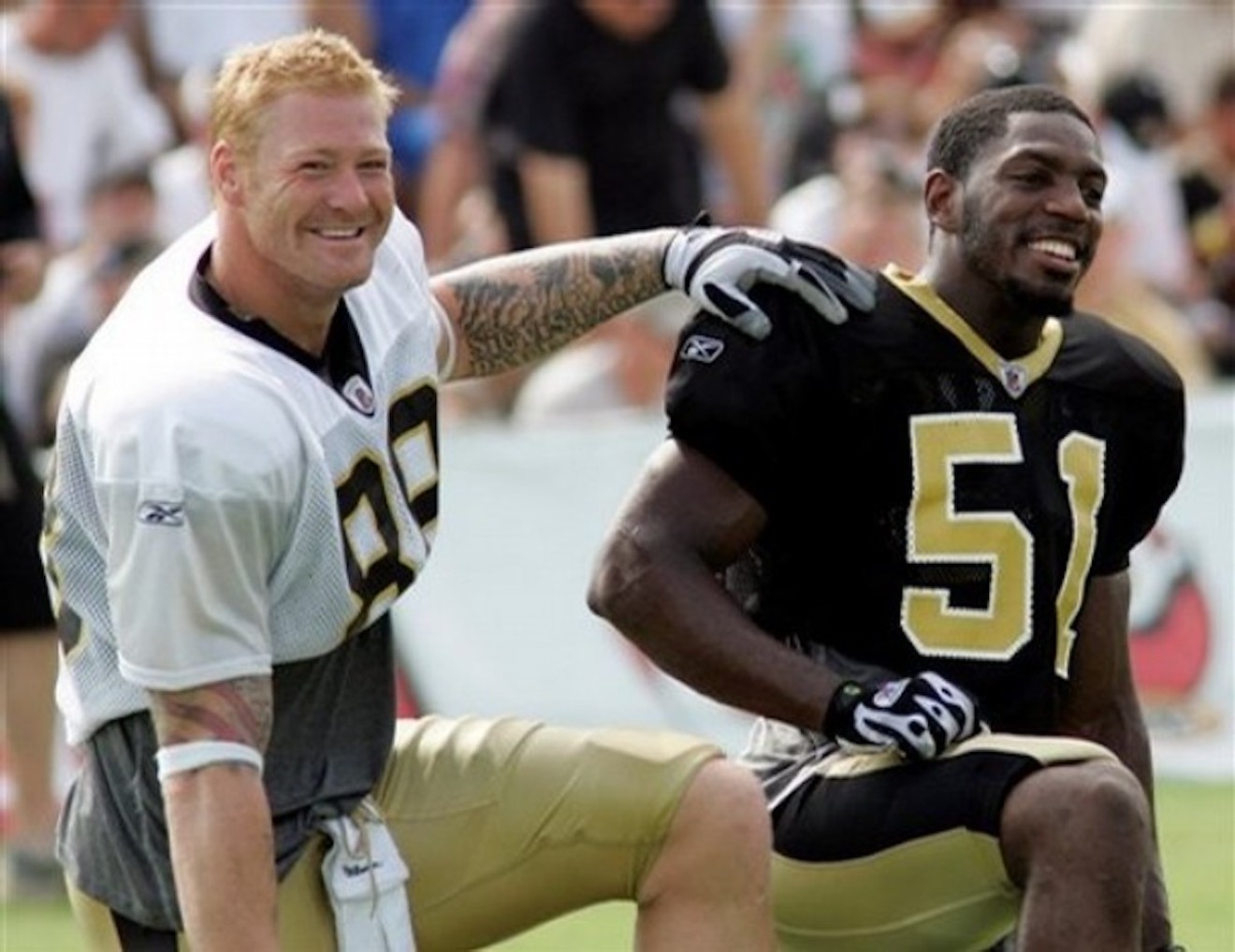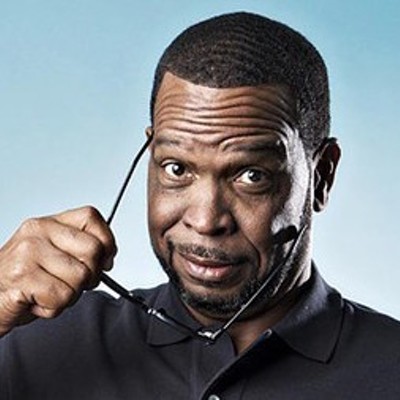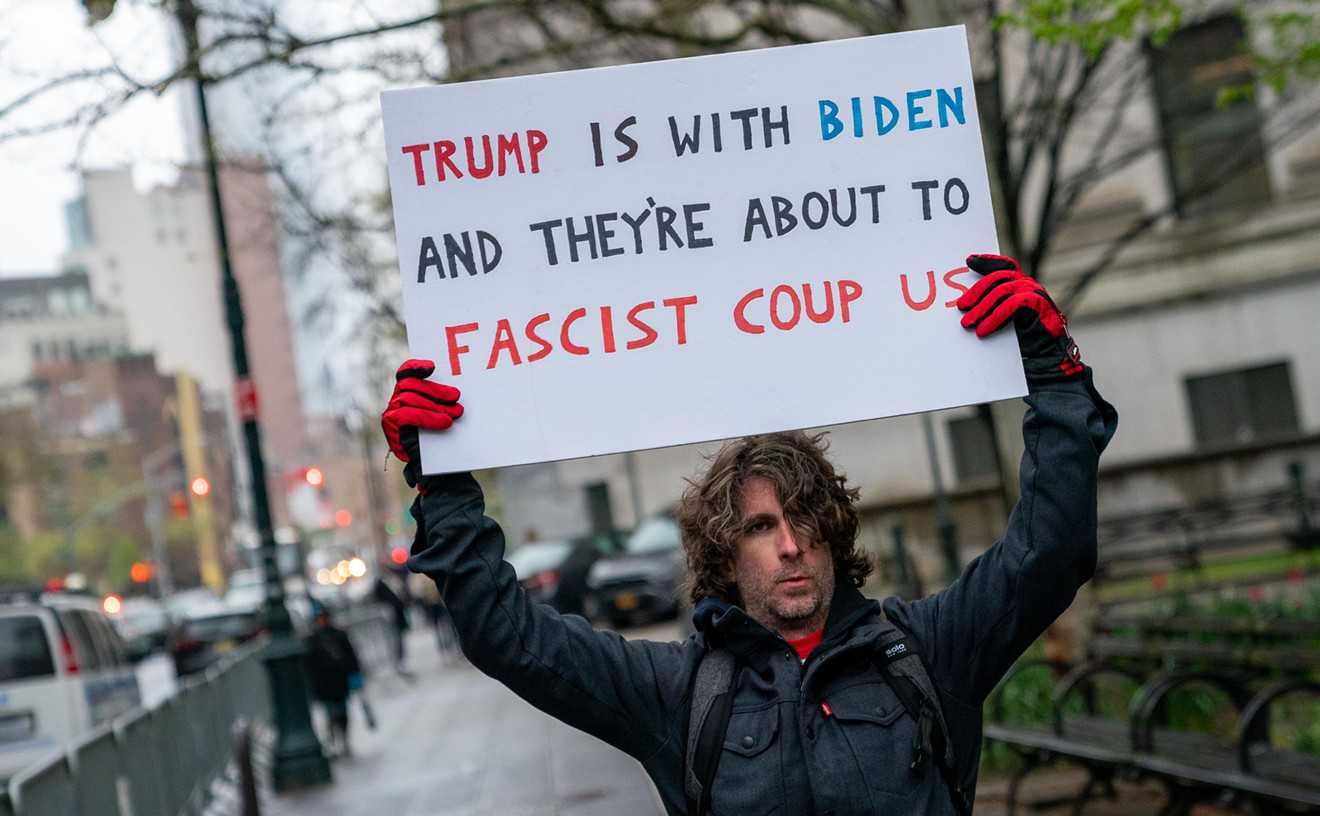Jonathan Vilma, a former NFL linebacker and defensive star on the University of Miami's 2001 national championship team, seems to think being a Hurricanes fan means turning into an Uncle Tom.
Last week, I visited UM's spring practice with football players from Miami Edison Senior High, where I coach. I tweeted a picture of the visit, which Vilma retweeted with the comment: "Fraud. How many guys did he send to FSU again???" A Twitter battle ensued.
Vilma claimed I am hurting UM by persuading inner-city kids to accept scholarships to other major college football programs. That's rich coming from a guy who was exposed for cavorting with convicted fraud Nevin Shapiro in a scandal that led to NCAA sanctions against the U.
Using his connections at the university, Shapiro orchestrated a $930 million Ponzi scheme. Part of his scam was using his illicit proceeds from his business to shower UM players with money, free meals, and comped trips to nightclubs. Shapiro boasted that Vilma was one of his favorite beneficiaries. Among these impermissible gifts were thousands of dollars in bounties for hits on opposing players. Vilma even had the audacity to nickname Shapiro "Lil Luke," a reference to me and my connection to the Hurricanes teams of the '80s.
Vilma also tweeted I should shut the fuck up because I haven't donated $500,000 to the University of Miami like he did. I would never give money to the U, a rich private university where the annual tuition costs around $50,000. Even when I am invited to attend a Hurricanes football practice, the Coral Gables campus makes me feel like a black man inside a Starbucks. Vilma thinks because he gave the school a small bag of cash, he can get on the board of trustees and hobnob with billionaire white men.
I put my resources where they are needed most: Miami's black community. I'm loyal to Overtown, Liberty City, Opa-locka, Perrine, Richmond Heights, and Miami Gardens. I've fought to secure millions of dollars in public funding for new youth centers. I run a youth sports program where every single person working with the kids is a volunteer.
Instead of writing a check to the U, Vilma should follow the lead of fellow Haitian-American Wyclef Jean and help the people in his country who don't have a roof over their heads and whose children are going hungry.
As a guy who was heavily recruited out of Coral Gables Senior High and now makes a living as an NCAA football TV analyst, Vilma should know better than to make outlandish statements about my role in helping African-American high-school student-athletes get a college education.
In my 15 years as a high-school football coach, my motto has been "Let the parents and the kids decide." I do my best to encourage college football coaches, especially the ones at the U, to give my players scholarship offers.
Every summer since 2009, I have taken groups of players to football camps at various major universities where they are evaluated. The tour hits about 12 universities. The first stop is always UM.
One of the first groups I took on the campus tour included Atlanta Falcons running back Devonta Freeman. The Hurricanes running backs coach told Freeman, at the time a star player for Miami Central Senior High, that he wasn't good enough to play for the U. Freeman accepted a scholarship from Florida State University, where he broke school records and won a national championship.
A couple of years later, then-head coach Al Golden told Miami Northwestern Senior High star wide receiver Amari Cooper that he would give him a "soft" scholarship offer. Golden had told two others the U wasn't recruiting any more wide receivers. Cooper committed to Alabama, where he led the team in receptions, yards, and touchdowns while helping the Crimson Tide win a national championship.
Golden also took a pass on Minnesota Viking Dalvin Cook, another star Miami Central running back, until the young man committed to Florida State. Golden and members of his staff showed up at Cook's house to dangle a late scholarship offer. Cook's grandmother cussed them out for not recruiting Dalvin from the beginning.
Other pro football players who participated in the U camps but weren't offered scholarships include Charles Gaines Jr., a free agent who played for the Cleveland Browns, Buffalo Bills, and Jacksonville Jaguars; Buffalo Bills offensive tackle John Miller; and Durell Eskridge, who played for the New York Jets, Arizona Cardinals, and Toronto Argonauts. The U also took a pass on Sean Joseph, now a starting middle linebacker for the Florida Gators, and Emmett Rice, a linebacker for the Seminoles.
It's not my fault the Hurricanes' coaching regimes failed to see the potential of the high-school players they allowed to sign scholarships with rival universities. Yet the U still has snagged its fair share of student-athletes I've coached or who have come through my youth sports program, including Pittsburgh Steelers cornerback Artie Burns, Cleveland Browns running back Duke Johnson, and Houston Texans linebacker Darryl Sharpton.
It's my job as a high-school coach to get my players into college. lf the U doesn't want to sign them and another university does, that's all that matters. Miami offers only 25 scholarships each year. They can't take everybody. l know that, and the U coaches know it too.
Vilma should apologize for defaming me.
Follow Luke on Twitter: @unclelukereal1.
[
{
"name": "Air - MediumRectangle - Inline Content - Mobile Display Size",
"component": "19274298",
"insertPoint": "2",
"requiredCountToDisplay": "2"
},{
"name": "Editor Picks",
"component": "17482312",
"insertPoint": "4",
"requiredCountToDisplay": "1"
},{
"name": "Inline Links",
"component": "18711090",
"insertPoint": "8th",
"startingPoint": 8,
"requiredCountToDisplay": "7",
"maxInsertions": 25
},{
"name": "Air - MediumRectangle - Combo - Inline Content",
"component": "17482310",
"insertPoint": "8th",
"startingPoint": 8,
"requiredCountToDisplay": "7",
"maxInsertions": 25
},{
"name": "Inline Links",
"component": "18711090",
"insertPoint": "8th",
"startingPoint": 12,
"requiredCountToDisplay": "11",
"maxInsertions": 25
},{
"name": "Air - Leaderboard Tower - Combo - Inline Content",
"component": "17482313",
"insertPoint": "8th",
"startingPoint": 12,
"requiredCountToDisplay": "11",
"maxInsertions": 25
}
]













